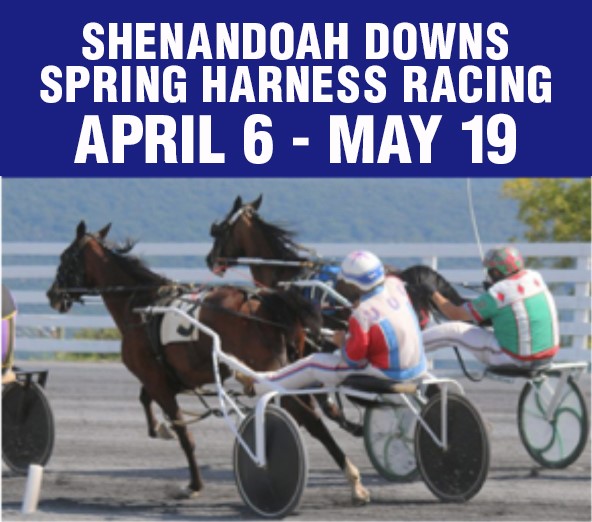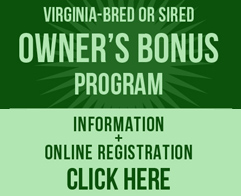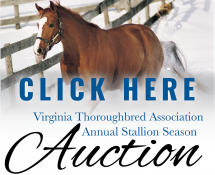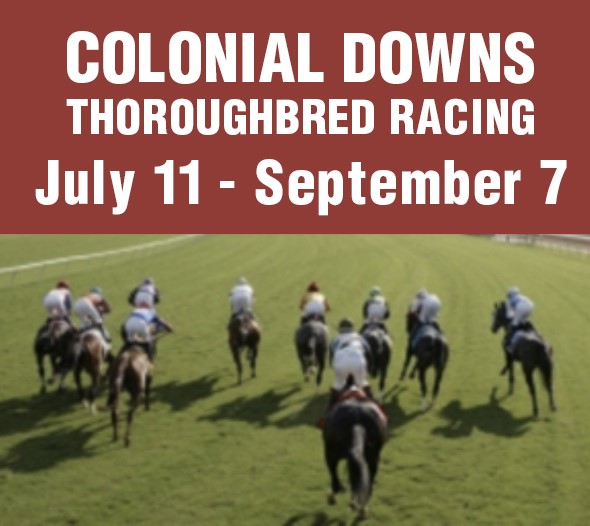The Virginia Racing Commission (VRC) approved a new license for Colonial Downs at its meeting December 13th which paves the way for a 600-unit historical horse racing (HHR) operation at the New Kent track and the return of thoroughbred horse racing in 2019.
The last thoroughbred meet was held at Colonial in the summer of 2013. The track closed for good shorty after the 2014 harness racing campaign ended late that fall.
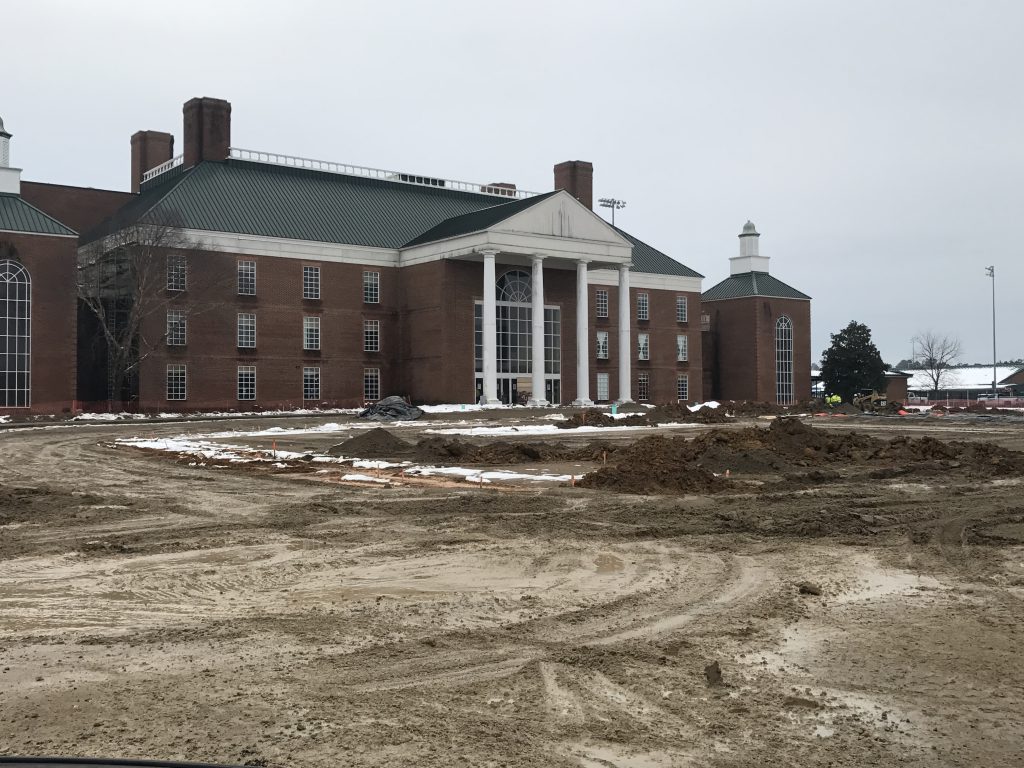
VRC Chairman D.G. Van Clief, Jr. called the license approval “a historic moment for Virginia racing.” He thanked everyone involved with both the new Colonial Downs Group and the Virginia Equine Alliance (VEA). “I can’t tell you what an important day this is and how appreciative we are for such a well crafted application.”
A 15-day summer meet will run next year from August 8th thru September 7th, with racing every Thursday, Friday and Saturday at 5 PM. A special holiday Monday card will be held on Labor Day at 1 PM. The Grade 3 Virginia Derby, which has been run in Maryland the last several years under the name ‘Commonwealth Derby’, will return to Colonial on August 31st. The Virginia Oaks and a slate of Virginia-bred stakes will also return to New Kent in 2019. The stable area, which can accommodate 1,000 horses, will open July 25th. Moving forward, Colonial expects to host up to 30 days of racing in 2020.
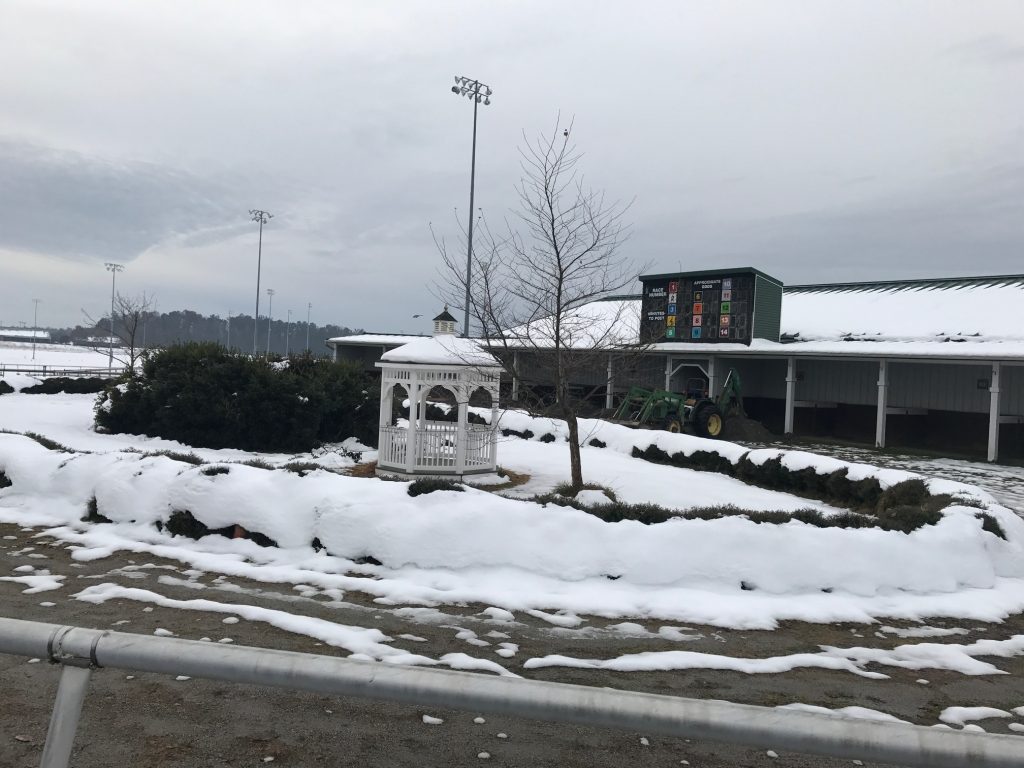
Colonial GM John Marshall gave VRC Commissioners and meeting attendees a preview of what a “reimagined” Colonial Downs will look like in 2019. He said the first floor of the facility will feel “social and local”, and will feature 508 HHR terminals, a Player Rewards area, a cocktail lounge with live simulcast betting, and a smoking section. The third floor will provide an OTB experience with several tellers and 16 self betting machines and a high level HHR area with 92 terminals. He said that floor will be “vibrant and comfortable.”
In regards to the layout for live racing, Marshall said Colonial will be prepared to accommodate up to 8,000 spectators. The initial part of the first turn area will feature a viewing platform geared as a social experience for fans. A tailgating section will extend beyond that through the turn, all the way to the chute area. “We’ll experiment with tailgating much like the Virginia Gold Cup has at Great Meadow.” The track apron will feature railside covered suites with beverage service then farther up, a VIP Experience will be located near the top of the stretch. That area will have a climate controlled tent with simulcasting, beverage service and food trucks. “That should be a great vantage point for fans,” said Marshall. “They’ll be able to overlook horses on the Secretariat Turf Course as they come out of the final turn and hit the final stretch.”
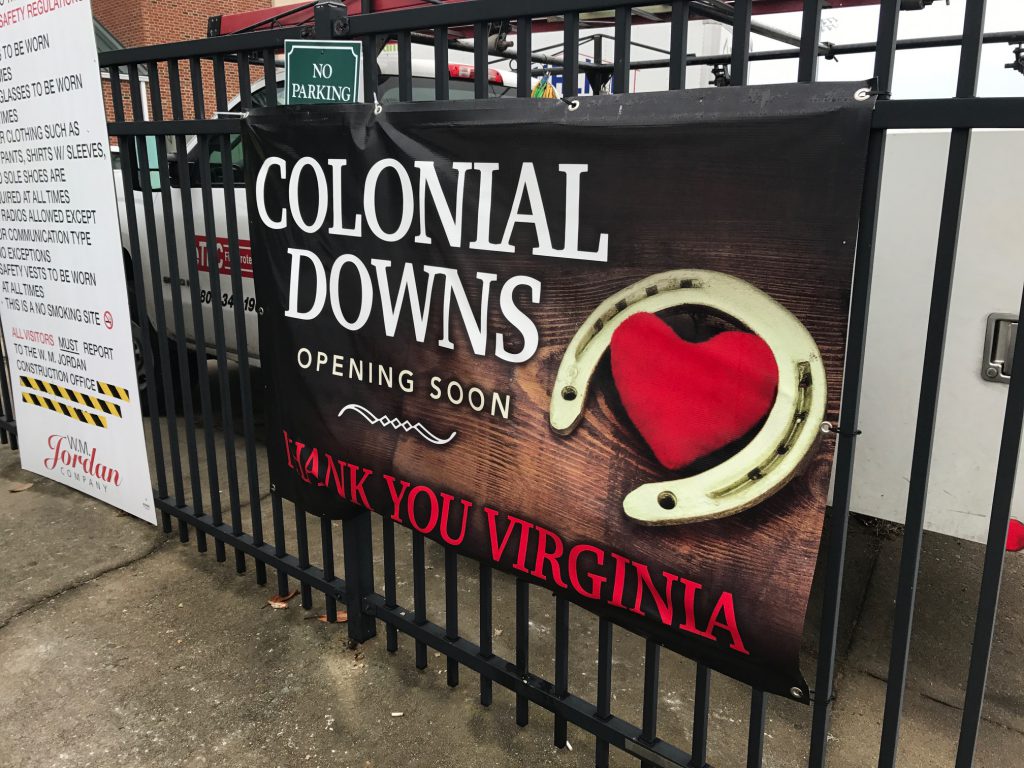
Marshall said Colonial Downs wants to present a boutique meet with elite racing, and is also embracing a Virginia First strategy. “When it comes to vendors and purchasing, we want to utilize local businesses. And when it comes to racing, especially with owners, breeders and trainers, we’ll have a Virginia preferred mentality.”
Brent Stevens, CEO of the Colonial Downs Group, provided a timeline for next year. The New Kent track will open with simulcast wagering and 600 HHR machines on April 15th under the brand Rosie’s Gaming Emporium. Three new OTBs, which will also operate under the Rosie’s brand, will open in 2019. The Vinton site is expected to open April 30th followed by the Richmond site June 8th and the Hampton site in August. He said there is capital in reserve for future sites.
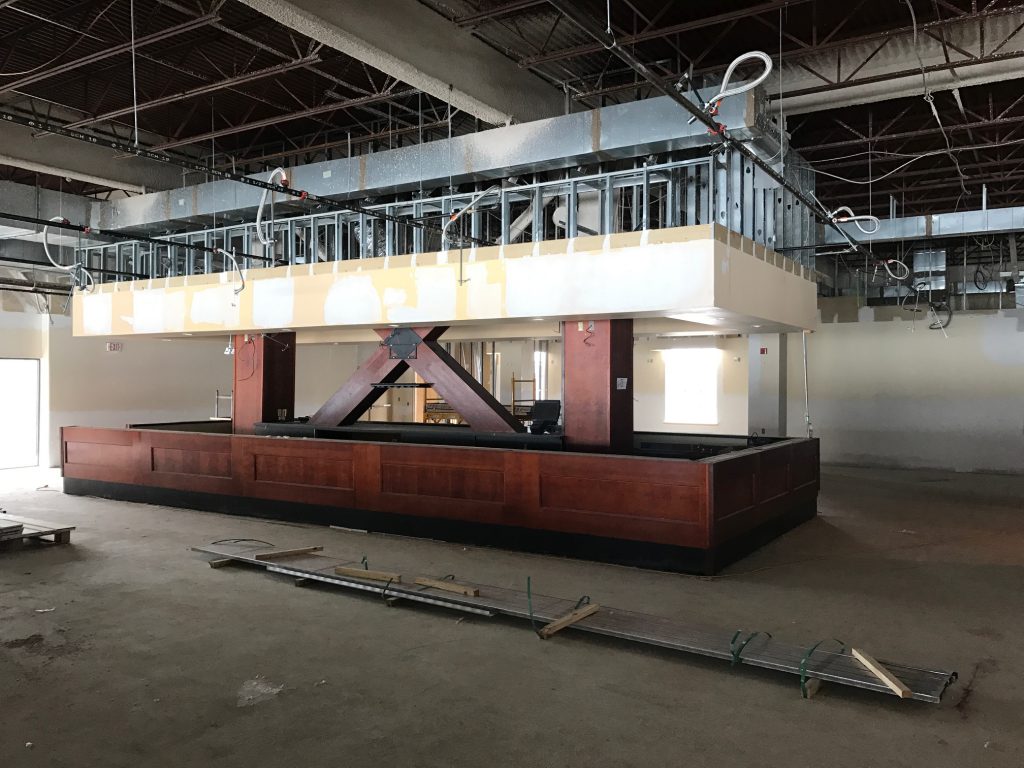
The Colonial Downs Group is making a $300 million investment in the Commonwealth, creating 800 jobs by the end of 2019. This effort will generate $25 million annually in state tax revenues, $17 million annually in local tax revenues and $25 million annually to Virginia’s horse industry.
“This is a momentous occasion today,” said Stevens. “We’ve been deeply committed for a very long time to get to this point.” He added his team’s three pillars will be service, quality and investment in the community.



